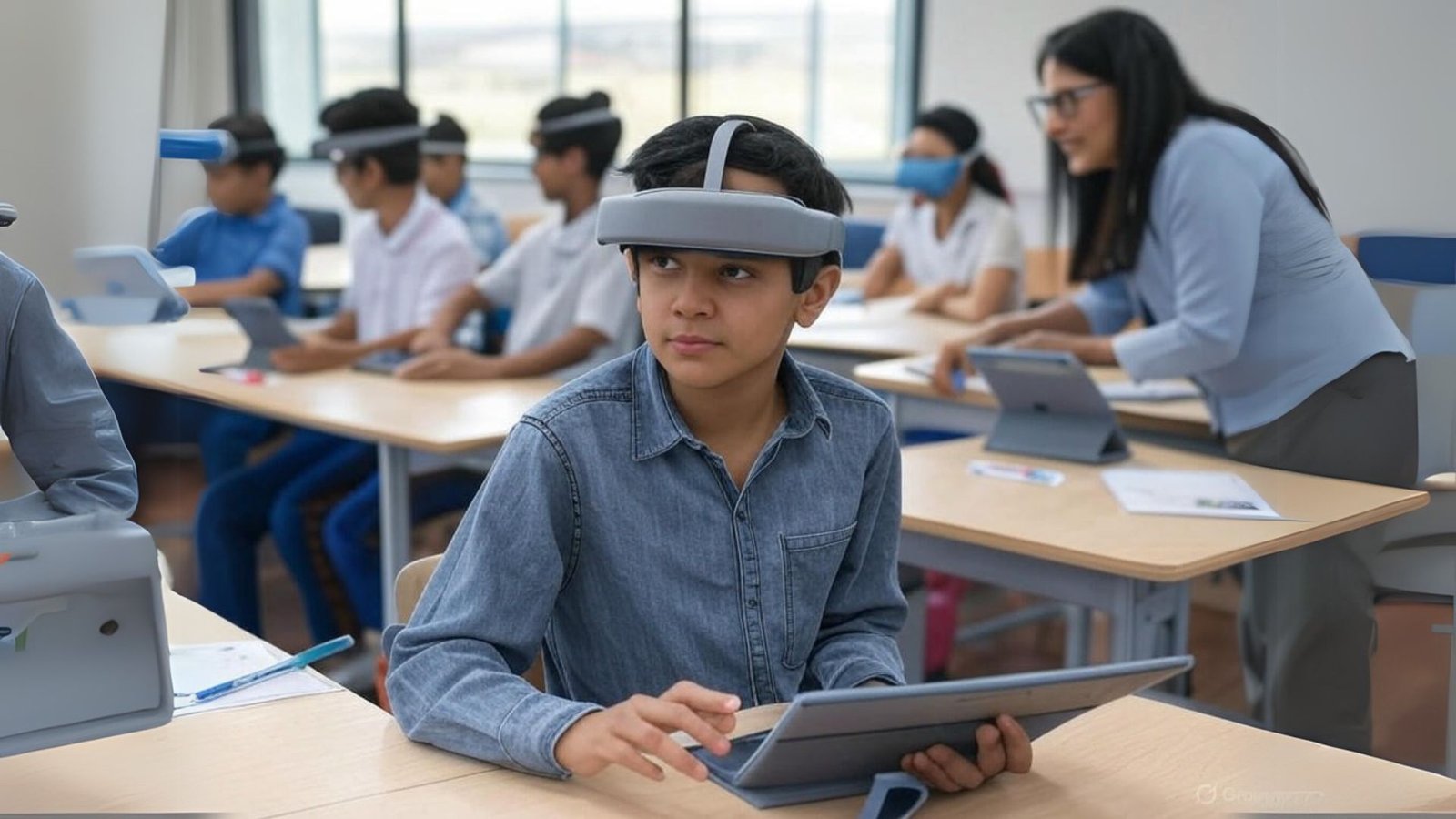How AI is Transforming India's Education System (And What It Means for You)
India's education system has been playing the same old script for decades students in rows, a blackboard, and a teacher lecturing. But all that is set to change. Artificial Intelligence (AI) is not just knocking on the door; it's breaking it down, transforming the way we learn, teach, and even think about education.
From AI classrooms to immersive learning, the future of education in India is being redefined. And if you are a student, teacher, or parent, this change will touch your life sooner than you can imagine.
AI: The New Foundation of Learning
Those days of AI, data science, and robotics being specialist areas for students in engineering are behind us now. AI is increasingly becoming as ubiquitous as language or mathematics, believes Abhay Jere, AICTE's Vice Chairman.
"Pretty soon, every student studying literature, biology, economics will need a basic background in AI, data analytics, cybersecurity," he maintains.
Why? Because AI is not only coding robots but
Personalized learning: AI adjusts lessons to the pace and learning style of every student.
Automated marking: Liberating teachers from time-consuming paperwork.
Smart content: Dynamic textbooks that adjust in real-time.
Virtual labs: Where students perform experiments without having physical equipment.
The CBSE has already made AI an optional Class 9 subject. But the actual challenge? Ensuring that kids don't merely copy-paste from ChatGPT but also think for themselves.
How Schools Are Combating "AI Cheating"
Rather than outlawing AI (which is not possible), CBSE is preparing teachers to craft questions that compel students to think, rather than simply summarize.
Example:
Old question: "Write an essay about World War II."
New question: "Imagine that you were a general in the Battle of Stalingrad. What would you change in strategy to change the outcome?"
This change challenges students beyond rote memorization into problem-solving and creativity, areas where AI still falls short.
The End of Rote Learning?
India's education system has been criticized for ages for its emphasis on memorization over comprehension. But with AI, that is changing.
Colleges are now embracing outcome-based education—emphasizing what students can do rather than what they know.
Consider:
A medical student rehearsing surgeries in virtual reality before laying hands on a real patient.
An engineering student debugging code with an AI mentor that adjusts to their errors.
A history student "walking through" ancient civilizations within holographic simulations.
This isn't science fiction—it's happening already.
From Hackathons to Startups: The Emergence of Student Entrepreneurs
In 2019, AICTE initiated the National Innovation and Startup Policy (NISP), which resulted in more than 25,000 institutions adopting student-driven startups.
The outcome?
Indian college startups are now worth ₹1.5 lakh crore.
Even if only 10% survive, that's ₹50,000 crore of new economic value.
And it's not limited to college students—CBSE has launched a School Innovation Policy, inviting children as young as 12 to start their own businesses.
Smart India Hackathon: Where Ideas Take Shape
Jere, the mastermind behind Smart India Hackathon, refers to it as the world's largest open innovation model.
2017: 7,000 teams competed.
2024: More than 54,000 teams competing.
The aim? Convert classroom theories into practical solutions—from farm drones to AI-based healthcare devices.
Will Schools Even Be Around in 20 Years?
Here's a radical prediction: The school system as we know it is dead.
Jere likens it to banking:
25 years ago: Queues galore, paperwork galore, timings at a fixed point.
Today: UPI, mobile banking, transactions happening instantly.
Learning is going down the same route.
The Classroom of the Future? More of a Theme Park
Think:
Instead of learning about the human heart, you "visit" it, engage with blood cells in VR.
Rather than memorizing chemical equations, you "become" an electron, bonding in the moment.
"Schools in 20 years might be more like Disneyland where learning is fun, not drudgery," says Jere.
What Does This Mean for You?
For Students:
AI literacy will be as basic as reading and arithmetic.
Critical thinking trumps memorization—AI can't substitute for creativity.
Get an early start: Hackathons, internships, and innovation programs are your best friends.
For Parents:
Emphasize problem-solving, not rote learning.
Embrace AI-supported learning tools (but be careful not to rely too much on them).
Get ready for a world where degrees are less important than skills.
For Teachers:
Change or be changed. AI won't substitute for teachers—but teachers who use AI will substitute for those that don't.
Care about mentorship, not merely lectures.
Frequently Questions Answered
1. Will AI replace teachers?
No—but it will revolutionize their job. Teachers will be guides and mentors, while AI takes care of grading, administrative tasks, and customized lessons.
2. Is ChatGPT making students lazy?
Only if used incorrectly. Schools are now creating assignments that need analysis and not answers, compelling students to think past AI-produced text.
3. How soon will VR classrooms become mainstream?
In 5-10 years. Already, universities such as IITs are piloting holographic lectures and VR labs.
4. What skills will be most valuable in an AI-driven education system?
Creativity (original ideas cannot be replaced by AI).
Emotional intelligence (managing teamwork, leadership).
Tech flexibility (ability to learn new tools in a short time).
The Education Revolution is Here
AI isn't revolutionizing education—it's redefining it. The passivity of traditional learning is giving way to immersive, personalized, and competency-driven experiences.
The question isn't whether you should change—it's how quickly you can.
So, are you prepared for the classroom of tomorrow?
SkillBloomer empowers educators, trainers, and coaches to effortlessly create, market, and scale their online courses. With intuitive tools and smart automation, it streamlines e-learning, so you can focus on your love for teaching without being bogged down by technical complexities. Turn your knowledge into a thriving online business even if technology isn’t your forte
.svg)
.svg)

 For Instructor
For Instructor

